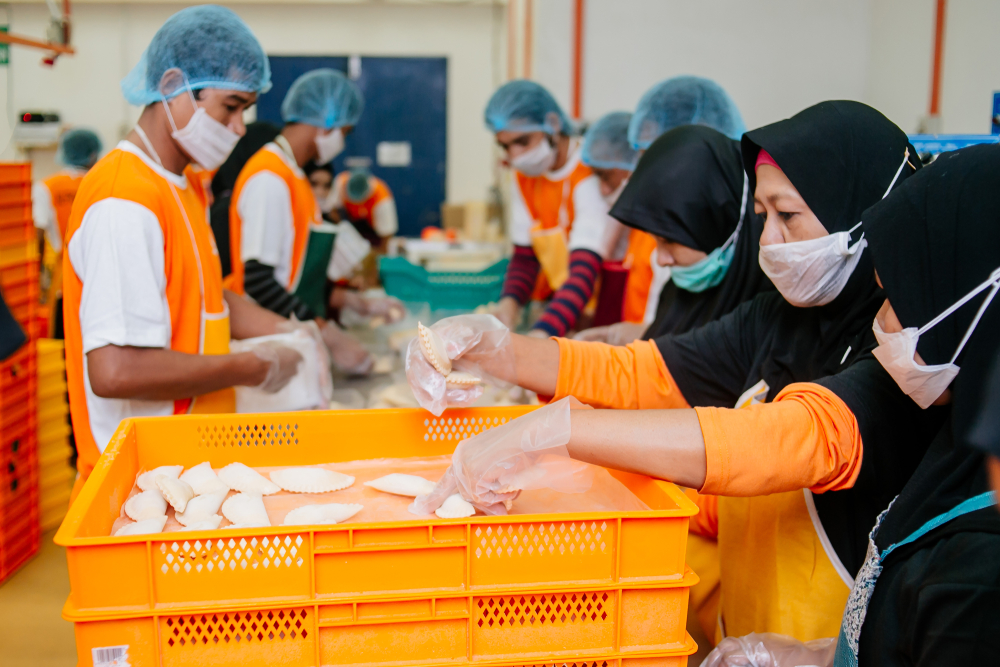Malaysia HDC chief: Blue skies beckon for halal SMEs in wake of crisis
KUALA LUMPUR - Malaysian halal businesses should keep calm and carry on as best they can during this coronavirus pandemic. According to the new chief executive of the Malaysian government-owned company charged with developing the halal industry, the rewards at the end of the crisis will outweigh all the hardship.
Appointed to the top job of the Halal Industry Development Corporation (HDC) late last year, Hairol Ariffein Sahari paints a reasonably positive picture of the future for most halal traders.
Yet he acknowledges it will not all be plain sailing while Malaysia is in lockdown and companies are only allowed to call on half their workforce under government distancing regulations.
EXPORTS HITS
“Production capability has been reduced, meaning fewer products are being exported, and logistics are not as prompt. Exports will definitely be affected during the first and second parts of the year, and I pray to God that the situation will improve,” he told Salaam Gateway over the phone.
A scientist by training Hairol Ariffein joined HDC in 2010 after a stint as a trade official and time on quangos. At the corporation, he has led various strategic initiatives including the establishment of the Halal Industry Development Council and the development of Malaysia’s second halal industry masterplan.
He took over on an interim basis from the retiring Jamil Bidin, who established HDC in 2006. Though he is now the full-time chief executive, the corporation has yet to announce this officially.
In light of the current situation, HDC has revised downwards its trade targets for this year and dropped its goal of achieving 50 billion Malaysian ringgit ($11.45 billion) in exports. However, it still expects to see growth after disappointing figures last year.
The corporation had been touting growth of 7-8% in 2020, before the onset of the pandemic. This would have resulted in Malaysia meeting its long-term goal of 50 billion ringgit in exports during the course of the year, an increase over last year’s 40.2 billion ringgit of registered trade.
“We recalculated our export targets this year and we forecast that halal exports will expand by upwards of 3%, so a more realistic target would be up to $10 billion [43.4 billion ringgit] this year,” he said.
ADVICE FOR SMEs
Hairol Ariffein’s advice to SMEs is to manage the situation and stay resilient. They should look after their cashflow and renegotiate terms with their suppliers, based on the smaller volumes they now order, he said.
They should also let consumers know they are still around and use this time to build loyalty through social media and promotions for regular customers. They would also be wise to look closely at finance through government stimulus schemes.
“We all need to think ahead post the COVID-19 crisis. This is very important because halal stands a very good chance to fly above this pandemic, due to the value it brings,” he said.
“This crisis is teaching more consumers about the importance of clean and safe products, which is central to what halal is offering. I have a very positive feeling about this one, and I would like to urge SMEs to invest more in marketing after the crisis is over.”
Based on HDC forecasts, many small halal businesses will have the opportunity in the medium-term to increase their production fivefold just to meet demand.
Even before the coronavirus pandemic, there was an estimated 80% supply gap for halal products around the world. After the crisis there will be a lot to catching up to do, especially for the big corporations.
Because of the nature of the pandemic, these major businesses have faced the same challenges as small ones, namely scarce and expensive raw material supplies, higher production costs and a shortage of workers.
“So this is where SMEs could take the opportunity to offer OEM or contract manufacturing. This is low-hanging fruit that they can leverage after the crisis is over,” said Hairol Ariffein.
Product consolidation would also be an interesting avenue for many halal businesses, he added.
“SMEs should talk to industry groups to see how they can find other companies to work with to produce a larger amount of goods. A lot will be needed when this ends.”
Now should also be a time to develop more robust supply chains, he believes, especially in light of the coronavirus crisis disrupting logistics. Many halal SMEs have been forced to watch raw materials and finished goods struggling to reach their destinations.
To this end, Malaysia needs to put in place stronger supply links with target markets so its exporters can really integrate into their halal ecosystems.
“This is what the new HDC is working on now, in spite of the virus outbreak. Our focus is on the Far East, including countries like Japan, Korea and Hong Kong. Next year, there will be more greenfield markets,” said Hairol Ariffein.
“But for now we need to stay positive and we will manage to get through this crisis together. SMEs just need to be resilient and plan ahead.”
|
HDC CEO ADVICE FOR SMEs AMID CRISIS
|
(Reporting by Richard Whitehead; Editing by Emmy Abdul Alim [email protected])
© SalaamGateway.com 2020 All Rights Reserved
